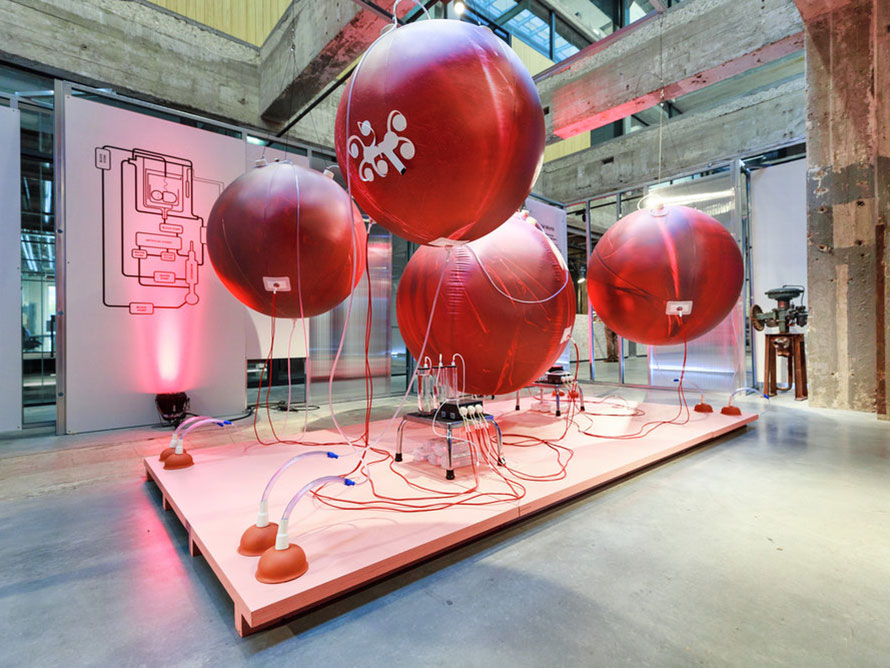Is it a dream come true or a science-fiction nightmare? Scientists in the Netherlands have been given €2.9m to build a prototype artificial womb. They say it could save millions of lives. Imagine it. A vast factory, where babies are stored in plastic bags of nutrients, blood, fluid… These strange red balloons give the babies everything they need to grow, until they are ready to be born. According to scientists from the Netherlands, this could be a reality in as little as 10 years. The team from the Maxima Medical Centre have been awarded €2.9m (£2.5m) to build a prototype of an artificial womb, which they say could save millions of lives. Some 15 million babies are born prematurely each year, half of whom die. Premature birth is the leading cause of infant deaths across the world. Currently, babies who are born too young are placed in incubators. But, according to Maxima doctor Guid Oei, these plastic cots are a “hostile environment” to premature babies whose lungs are not yet ready to breathe air. Instead, the artificial womb would keep babies swimming in fluid, replicating the environment in the female uterus, while oxygen and nutrients are fed through an artificial umbilical cord. The babies could be placed in the artificial womb immediately after birth. The Dutch scientists are building on the work of scientists in Philadelphia, and are seeking approval to test their “biobag” on human embryos, after using the technology to grow a baby lamb in 2017. “You wouldn’t really imagine putting your baby in a plastic bag,” said Lisa Mandemaker, a designer at Maxima. “But we need to think about a design to save your baby.” Mandemaker raises the possibility that, in the future, women may choose to forego their uterus altogether and grow their babies in artificial wombs from conception. “You don’t have to worry about morning sickness, or changes to your body,” she says. But there are ethical fears about who would control the technology, and how it might be used. “It’s a very thin line between a dream come true and a horrific science-fiction film,” says Sanne, whose son James died after being born at 24 weeks. The prospect of babies being grown in tanks, known as ectogenesis, is reminiscent of Aldous Huxley’s science-fiction novel Brave New World, in which cloned foetuses are grown in “batches” of hundreds. Is it a dream come true or a science-fiction nightmare? When a child is born It’s a dream come true, say some. Not only would it save the lives of millions of premature children, it would open up new options for gay couples and women without wombs. Artificial wombs could be a safer alternative to pregnancy and childbirth for many women. Socially, it could erase a central difference between the sexes, so women no longer have to pause their careers for childbearing. But there are many unsettling questions that remain unanswered: when foetuses are viable from conception, will abortion be outlawed? Could women be forced to have unwanted embryos extracted and grown? If artificial wombs are a privilege of the elite, will natural birth be stigmatised and negatively linked to class and race? Can we accept these experiments on babies for human trials? We must tread carefully. KeywordsBrave new world - A phrase from Shakespeare’s play The Tempest which was used as the title of a dystopian novel by Aldous Huxley.
Is it a dream come true or a science-fiction nightmare? Scientists in the Netherlands have been given €2.9m to build a prototype artificial womb. They say it could save millions of lives.
When a child is born
Keywords
Brave new world - A phrase from Shakespeare's play The Tempest which was used as the title of a dystopian novel by Aldous Huxley.
Baby in a bag: artificial womb project launches

Glossary
Brave new world - A phrase from Shakespeare’s play The Tempest which was used as the title of a dystopian novel by Aldous Huxley.
